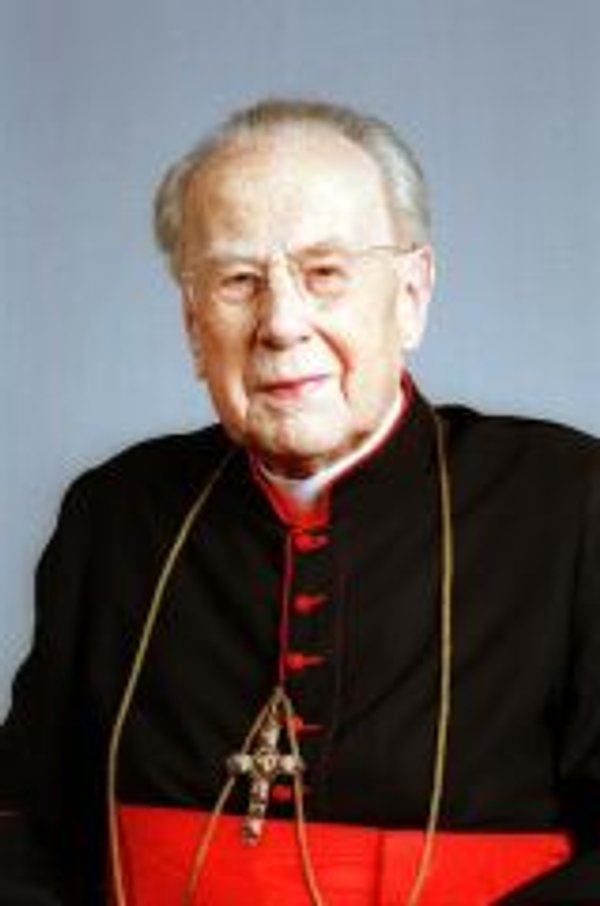For Franz Cardinal König, Vienna's retired archbishop, the news that nothing stands in the way of the canonization of Blessed Josemaria Escriva, Opus Dei's founder, means "that Escriva now belongs to the Church's treasure; he's at home there." König personally knew and dealt with Opus Dei's founder. Therefore his is an exceptional testimony of the man.
During your long years at the head of the Vienna archdiocese, you brought about the Church's reconciliation with the Social Democracy, you pioneered the Vatican's "Ostpolitik," and welcomed Opus Dei to Vienna in 1957. What's your recollection of those days?
I recall a visit in 1957 from a young priest who had earlier been a physician and quite an athlete for Spain. A Catalonian named Joaquín Francés, he came to acquaint me with something founded in Spain whose basic ideas he wanted to spread in Austria. I was then keen on seeing lay apostolate become a reality in the Church, an idea that later, with Vatican Council II, was to become official Church teaching.
But back then?
When I learned that Francés had been national champion of the high vault and trampoline, I thought, "Wonderful: the Church would be present not only in St. Stephen's cathedral but in sports as well." Since then, Opus Dei has been at work in Austria and has spread considerably.
How did you meet Opus Dei's founder?
It was during the days of the Council that I met Blessed Escriva de Balaguer. I'd been told that he fostered the role of the laity in everyday life, in the world of work. He was out to make the Church, without Roman collars or episcopal regalia, active through its lay members. In my opinion he was a man energized by a magnanimous spirit. He asked about the Council; I became aware that he traveled widely fanning the lay apostolate. We spoke a lot about what was happening in the world; I soon realized that in him I saw the Church alive.
Escriva grew up in a clerically top-heavy society, where lay people were largely passive in the Church. Given that background, how do you explain that nevertheless such a charisma actually arose?
I'd say that in his case the Holy Spirit found very receptive human ground. Given his wide contacts at the university, he realized that there existed two separate worlds—religious life and professional life—which in fact should be harmonized. What then Escriva was preaching came across as complete novelty. Even though the Church teaching authority today espouses such ideas, the reception is still slow.
As usually happens, when something new comes along, it's greeted with a certain amount of skepticism. "What do they want? Who are they? What are they up to?" History teaches that many movements begin well, but later die off or end up being sects. It's not easy to persuade those who lead off doubting. Only time and patience will tell. Opus Dei has had its share of slings and arrows, though it has now found its home in the Church.
Regarding canonization, many people don't know what it means exactly.

I rejoice with each new canonization. In this case canonization means that Escriva is neither alien nor marginal. Rather he now belongs to the Church's treasury; he's welcomed to the multitude of saints.
Opus Dei has taken root and spread not only in Austria but also throughout the Church. Can we now say that it's found its place in the Church?
That's certainly my impression. Today it's no stranger to the Catholic press. Left behind are the protests and critics who said, "What Opus Dei does cannot be" or "They're closed-minded." Such things are history. People are coming around to what the founder taught.
